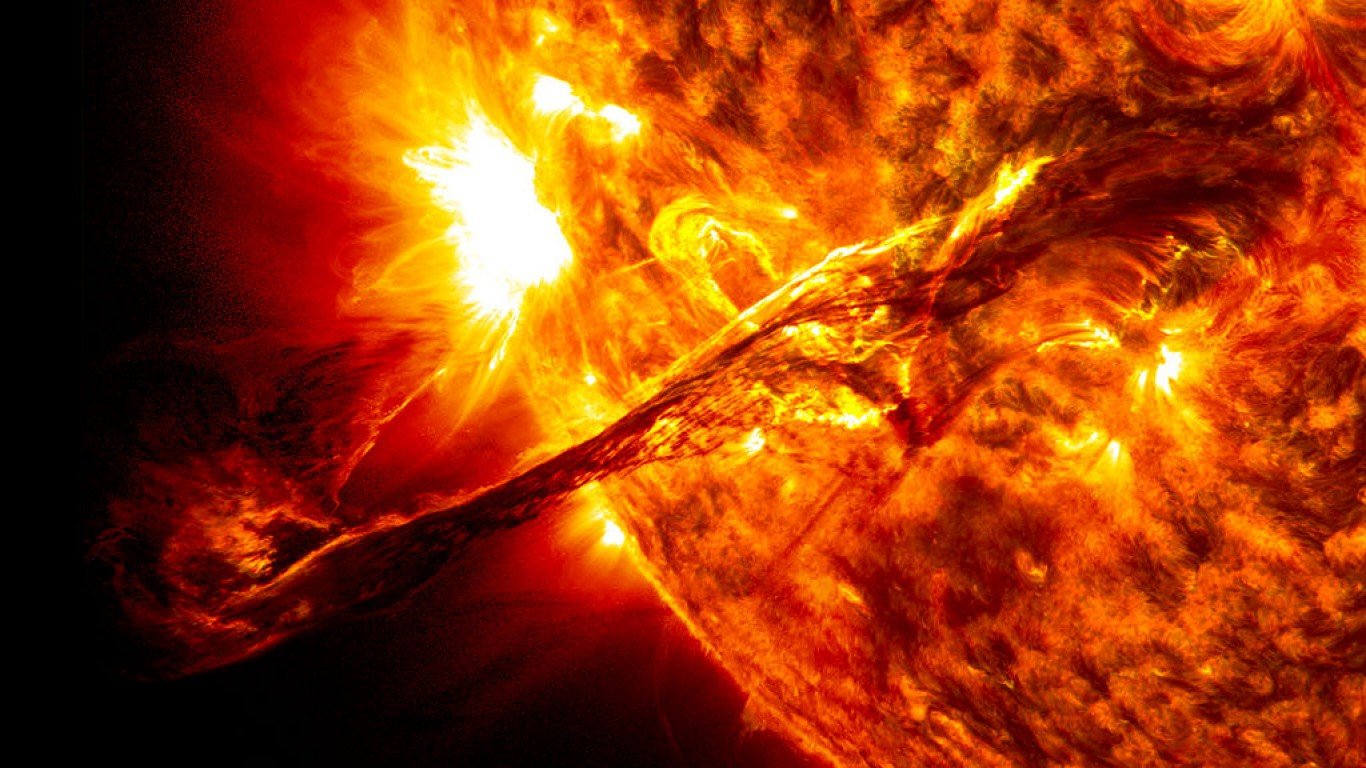
What will be the end of the world? A flood that washes everyone away? A raging asteroid that will lead us to the same fate as the magnificent dinosaur? Or is it an airborne infection that destroys us from within? As it turns out, our end may be due to a solar storm. Scientists have discovered evidence of a massive storm that devastated our planet 14,300 years ago, and which, if it occurs today, “could be catastrophic for society.” According to Reuters, compelling evidence was discovered in the remains of a tree near the Drouzet River in the French Alps.
The annual growth rings of a Scots pine tree stump revealed radiocarbons, an element emitted by the sun during solar storms
The annual growth rings of a Scots pine tree stump revealed radiocarbons, an element emitted by the sun during solar storms. This could be the greatest solar storm ever, potentially surpassing the Carrington Event in 1859, which triggered a global geomagnetic storm and “a nighttime aurora so bright that birds sang as if the sun was rising.” According to calculations, this solar storm from more than 14,000 years ago was roughly ten times the size of the late 1800s storm that caused telegraph systems to malfunction. According to astronomers, the repercussions of such a solar storm on Earth now would be “catastrophic.”
One thing you should know about such storms is that they tend to knock out electronics, and as per Edouard Bard, a professor of climate and ocean evolution at the Collège de France and the research center CEREGE, “if similar solar storms happened today, they could be catastrophic for society, as we are so reliant upon technology.” “They could do enormous damage to our electricity grids, potentially causing nationwide blackouts lasting months, permanently putting satellites out of action with the huge bursts of energetic particles destroying their solar panels and stopping us communicating with them, and pose severe radiation risks to astronauts and aviation. In the worst-case scenario, the impact could cost us billions, or even trillions, of dollars in lost GDP,” he said.
“This is the big question: will our communications, electricity grids, and satellites mostly be able to withstand their impacts and just suffer temporary effects before quickly coming back online? Or will they catastrophically fail?” added Heaton.
